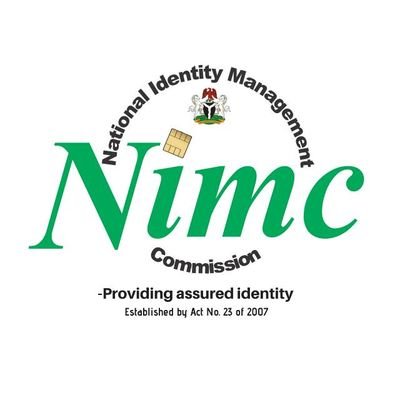The National Identity Management Commission (NIMC) has dismissed that its database was compromised as a result of the undersea cable cut which disrupted services of banks and telecom operators in Nigeria.
This is contained in a statement by the Head of Corporate Communications of NIMC, Mr Kayode Adegoke in Abuja.
The commission assured Nigerians of safety and protection of their data.
The commission’s assurance came as response to report from some sections of the media concerning an alleged breach of citizens’ data by a private organization, XpressVerify.
“We express gratitude to media partners and the whistleblowers for bringing this to our attention.
” And wish to assure Nigerians and legal residents that there is no data breach of any sort and the Citizens’ data is safe and secure in the Nigeria’s National identity database, “it stated.
The Director-General of NIMC, Abisoye Coker-Odusote, promptly ordered a comprehensive investigation into the matter to find out if any of the Commission’s Tokenisation verification agents has in any way breach the licensing agreement either directly or through any of their sub-licences.
‘Top-level security is in place to protect the NIN and other personal data of every citizen and legal
resident”, she said.
NIMC reaffirms its unwavering dedication to safeguarding, securing, and responsibly managing the data entrusted to us.
The commission said it understands the critical importance of maintaining public trust and confidence in our operations, and we will continue to uphold the highest standards of integrity and accountability.
NAN reports that the Nigerian Communications Commissions (NCC) said that repair works are ongoing on the undersea cable cuts that resulted in equipment faults on the major undersea cables along the West African Coast on Thursday leading to internet service disruption.
The West Africa Cable System, MainOne and ACE sea cables — arteries for telecommunications data — were all affected on Thursday, triggering outages and connectivity issues for mobile operators and internet service providers in the region.
MainOne on Friday said that an “external incident” resulted in a cut to its cable system in the Atlantic Ocean, offshore Cote D’Ivoire along the coast of West Africa, ruling out human activity as a cause.
“Our preliminary analysis would suggest some form of seismic activity on the seabed resulted in a break to the cable”, MainOne said, adding it would obtain more data when the cable is retrieved during repair.
“Given the distance from land, and the cable depth of about 3 kms (1.86 miles) at the point of fault, any kind of human activity – ship anchors, fishing, drilling etc has been immediately ruled out,” Reuters quoted MainOne as saying.
The incident negatively impacted data and fixed telecom services in several countries of West Africa, including Nigeria, Ghana, Senegal, Côte D’Ivoire, among others.
However, the NCC in a statement said that operators of the damaged cables had commenced repairs, noting that internet services were gradually being restored.
“Cable companies – West African Cable System (WACS) and African Coast to Europe (ACE) in the West Coast route from Europe have experienced faults while SAT3 and MainOne have downtime.
READ ALSO:
- Nigeria: Is Egalitarian Society A Mirage In Our Clime?
- NSC appoints Yusuf Ali CEO Elite Athletes Development Board
- NCC approves 50% tariff adjustments for telecom operators
- Donald Trump sworn in as United States President
- BREAKING: Trump takes oath, begins 2nd term as U.S. President
“Similar undersea cables providing traffic from Europe to the East Coast of Africa, like Seacom, Europe India Gateway (EIG), Asia-Africa-Europe 1 (AAE1), are said to have been cut at some point around the Red Sea, resulting in degradation of services across on these routes.
“In Nigeria and other West African countries, Internet access and speed have experienced disruptions in the networks of service providers in the affected countries,” the NCC said in the statement. (NAN)


